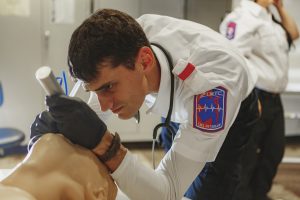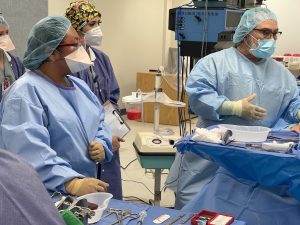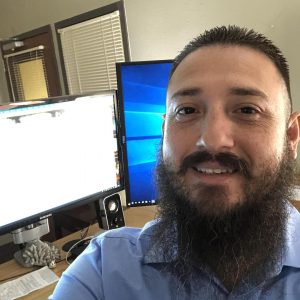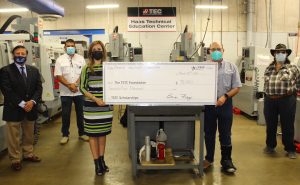(HARLINGEN, Texas) – Computer Programming Technology at Texas State Technical College equips students with the essential tools they need to continually stay in demand in this rising industry.
The job outlook for computer programmers has not slowed down. In fact, the remote work environment that many people have become familiar with will lead to the need for more technicians who understand the gadgets and gizmos of the devices that connect us to the rest of the world.
“We have not seen a decline in demand for computer programmers and do not expect to see one anytime soon,” said TSTC instructor Shelby Coffman. “In addition, we have been very encouraged to see our recent graduates of the Computer Programming Technology program around the state find employment after graduation despite recent events.”
According to thebalancecareers.com and indeed.com, responsibilities of computer programmers include developing, testing and implementing programs on multiple operating system platforms, creating and publishing technical diagrams to support coding efforts, and integrating new functions into existing applications.
Coffman said that much of the work can be done from a programmer’s own home.
“Computer programming can generally be performed with the resources that most people either already have or are within reach, like a computer and broadband internet connection,” he said. “Aside from the actual act of programming, communication with teammates and clients can be performed remotely utilizing virtual meeting applications.”
Shannon Ferguson, an instructor in the TSTC Computer Programming Technology department, said that TSTC is not only teaching students what it takes to dominate in this field, but also changing the curriculum when needed to keep up with the standards of the industry.
“Technology, as well as industry demand, is continually changing and evolving,” he said. “Like most programs at TSTC, the Computer Programming Technology department regularly reevaluates and adjusts our curriculum to meet the needs of industry partners and demand.”
He said that the ultimate goal is creating graduates who are ready to get to work.
“We work closely with our departmental advisory board to ensure we teach the skills and topics that industry is looking for in prospective employees,” Ferguson said. “Our goal is to make sure that we produce graduates that are ready for the workforce.”
To learn more about TSTC, visit tstc.edu.
Photo caption: Computer Programming Technology at Texas State Technical College equips students with the essential tools they need to continually stay in demand in this rising industry.









